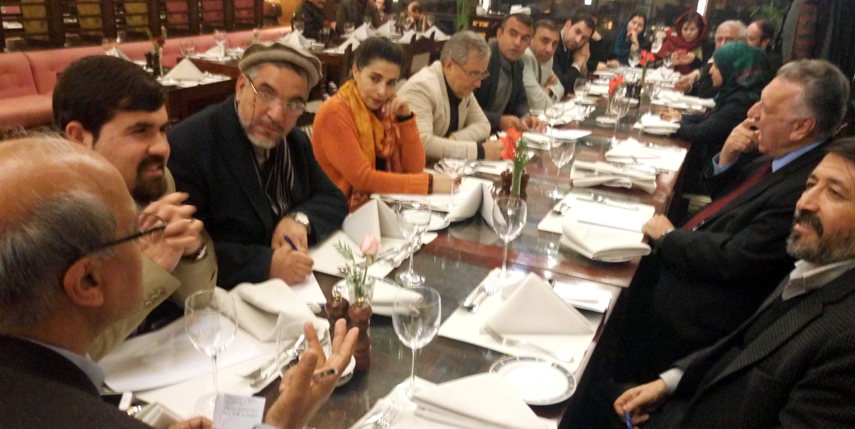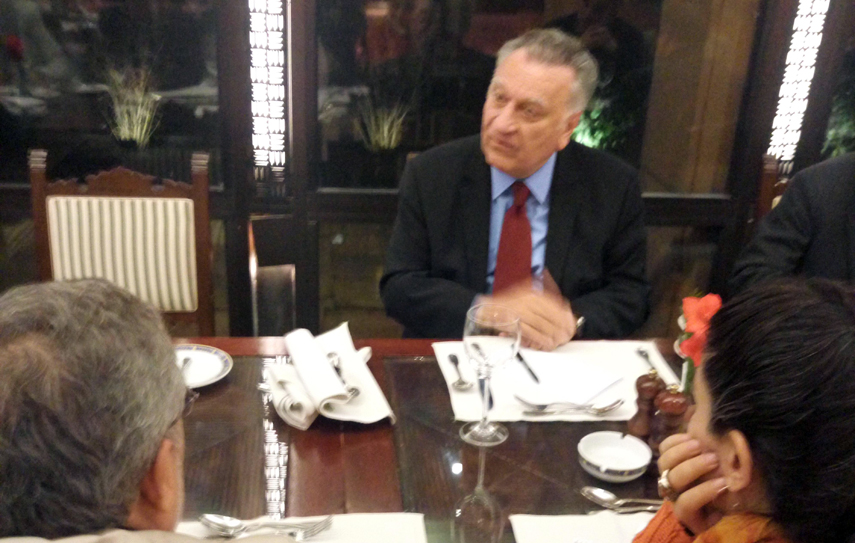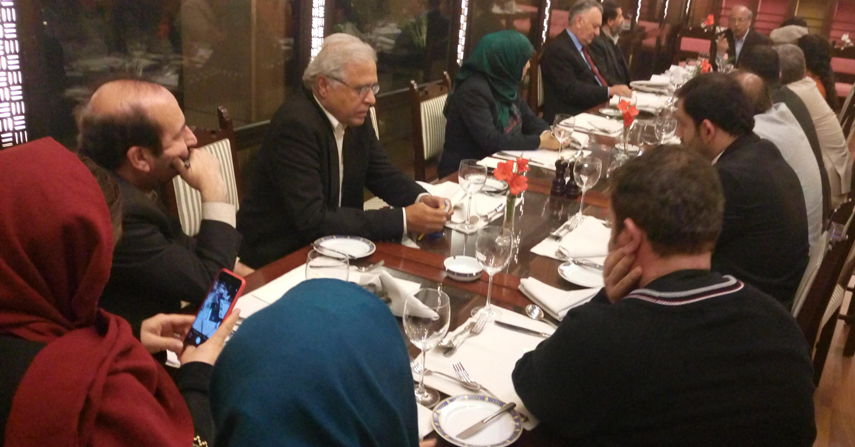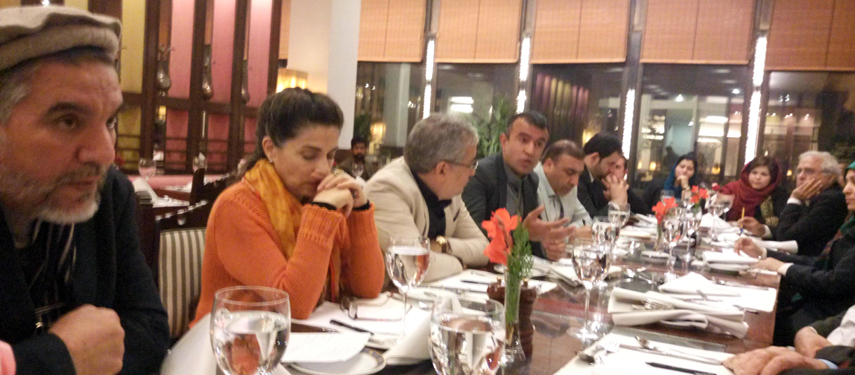The Pakistan Afghanistan Joint Committee (PAJC) members from Pakistan met with the members of different civil society organizations in Kabul on February 17, 2017 on the sidelines of fourth PAJC workshop.
Ms. Wazhma Frogh, Director WPSO, briefed the Afghan civil society members about Beyond Boundaries and how it was an attempt to improve the relations between two countries. She said that the role of civil society was crucial given that the involvement of influential people can help policy making into favour of bilateral relations.
Mr. Imtiaz Gul, Executive Director CRSS said that the common man has suffered a lot from conflict. People take such interventions in a commercial way – and resultantly the human aspect is lost – but we treat Beyond Boundaries as our duty towards the people from both countries, instead of just a project. We are trying to improve the bilateral relations in whatever way we can and discussing a diverse range of issues as only discussing and remaining stuck over security takes you nowhere. The unofficial communication channels between two countries – including civil society – are of great importance when the relations are not good at the official level.
Qazi Humayun, former Pakistani Ambassador said that he had great confidence in the Afghan friends and CRSS and other people involved in Beyond Boundaries for improving the relations between Afghanistan and Pakistan. Since the civil society and media on both sides have strengthened over time, they can play a great role in improving relations between and perceptions on both sides.
Mr. Idrees Umer Zaat, Afghan civil society member said that both sides had already made so many mistakes in the past. He said that both sides should find common grounds and jointly work to resolve the issues of mutual concern improve people-to-people relations and build positive perceptions on both sides. The people involved in the dialogue should also be impartial while discussing the issues of mutual concern.
Mr. Tahir Khan, Pakistani delegate and senior journalist stressed that the problems between the two countries should be addressed through bilateral channels. The two governments must know that the political problems between them have an ultimate impact on people-to-people relations. It is the responsibility of media and civil society to play their roles to improve the perceptions on both sides.
Mr. Umer Zai, Afghan civil society member said that the root causes of conflicts and problems need to be addressed. The commonalities should be built upon and people-to-people contacts should be fostered. The blame game between Pakistan and Afghanistan should end. The civil society has a great role to play for mainstreaming the problems the matter to the general public.
Syed Abdullah Ahmadi, Afghan civil society member said that the connection and collaboration between the civil societies from both countries is critical for common solutions and reconciliation process. It is extremely important to have a vocal civil society.
Mian Sanaullah former Pakistani ambassador said that it was important to understand each other’s concerns. The two countries have a rich history of commonalities to build upon. The inner strength to speak for what one believes in lends greater credibility and is needed for peace. He said that Beyond Boundaries had worked for several issues such as refugees stay extension, issuance of visas for exceptional cases, trade issues and generated focused and result oriented policy recommendations. The policy of Pakistan government is to continue facilitation for Afghan refugees in Pakistan. The development on the refugees issue is the outcome of BB’s work and recommendations.
Mr. Dalili, Afghan civil society member said that the political situation all over the world had changed. The civil society and the people of two countries shouldn’t be silent. The educated people joining extremists is not a good sign. The media and civil society have to be honest with the people. We should jointly work to improve the people-to-people relations and voice our concerns through media as it is a critical tool in improving perceptions. We should all also start reaching out to those at helm on both sides.
Mr. Aziz Rafiq, Afghan civil society member said that the core issues should be discussed and addressed rather than addressing the symptoms. He said that the economic cooperation modalities should also be discussed and clarified as well. The growing hostility in Afghanistan against Pakistan is not to the benefit of Afghanistan. The two countries should sit together and think what is going to benefit them in the future.
Mr. Sami Mahdi from Tolo TV, Afghanistan said that the two countries should focus on solutions and unrealistic policies should be given up. The focus should be on geo-economic and social development. The blame game damages both sides and it helps the governments to skip their responsibilities.




